Interview: Joshua Moore of We Came As Romans Discusses New Album, 'Understanding What We’ve Grown to Be'
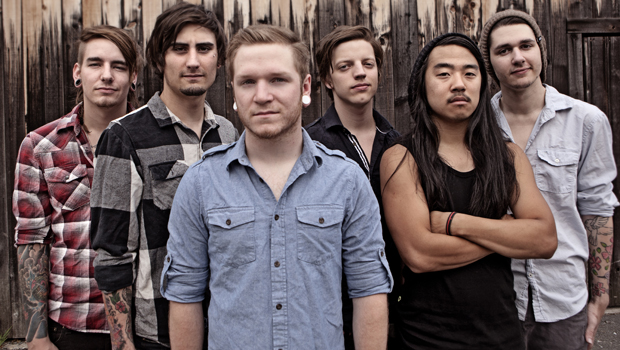
Michigan-based hardcore band We Came As Romans is no stranger to the road.
Since the release of their 2009 full-length, To Plant a Seed, these Motor City musicians have enjoyed an ever-growing fan base — and tour schedule.
Guitar World recently found time to chat with guitarist and lyricist Joshua Moore about the band’s new album, life on the road and recent bacterial meningitis scare.
GUITAR WORLD: Your new album, Understanding What We’ve Grown to Be, just came out. What kind of response has it been getting?
It’s been awesome. Even on this tour, there are already kids singing the words. There were kids that knew all the lyrics the day the album was released. Everyone’s been giving it pretty good reviews. I haven’t heard many negative things, which is really good, considering I view it as the best work that we’ve ever written as a band. I’m glad to see that most of our fans agree with that.
What was it like working with producer Joey Sturgis again?
We love working with Joey. We’ve been recording pretty much everything with him since 2008. We did our EP with him, our full length, a single, and then we did this album. He really understands our band and what we try to accomplish through our music. He’s a good friend of ours too, so it’s nice to be in the studio with someone you’re so comfortable working with.
Get The Pick Newsletter
All the latest guitar news, interviews, lessons, reviews, deals and more, direct to your inbox!
Do you find yourself learning from him?
Yeah, sort of. He had a really good vision for the production aspect of our album. There’s only so much that you can put into words, and I feel like Joey really understands that without me having to ask him to do certain things. There were a lot of times where I would suggest something, and he’d say, “Oh, I’m already working on that right now.” We see eye to eye on just about everything.
Did you try anything different in the studio this time?
We tried to go with more natural programming and focus on lots of strings and grand piano. I guess it’s what’s appealing to us, and having strings in our music was something we’ve done since the beginning, starting with our EP. It’s something that our fans know us for, so we decided to try to focus on that a little more.
The orchestral sound is pretty signature for the band. How are those parts written?
Ninety-five percent of the string parts in our music are parts that I wrote on guitar and decided would sound way better on strings than on a lead guitar. It’s just about knowing which instrument will sound best. I wrote about three of the songs on the new CD on an acoustic guitar. It’s weird how it translates, but it’s all how you hear the song in your head.
The lyrics are much darker on this album than on previous releases, especially compared to those on To Plant a Seed. What caused the shift?
When we released To Plant a Seed, we’d only been full U.S. touring for about a year, and so we were still really new to the industry and to how everything is. After that, we pretty much stayed on the road the whole time. This year, before the tour started, I was home for two and a half weeks. Before that, I’d been home less than two weeks for the entire year. We’re just always on the road, and I think that opened up our eyes a little bit. I think that the reality of being a touring musician set in, and it is a little darker. But I think you have to acknowledge the dark things in life in order to be happy with all the positive things.
How do you feel about writing the band’s lyrics, but not singing them? How did this come about?
It is kind of different, but when I write lyrics, it’s not like I write them, and then Dave and Kyle go sing them on stage, and that’s it. It’s not Dave and Kyle singing Joshua’s lyrics. Whenever I write anything, I take it to the band and ask if this is how we want to be represented as a band and if it’s something that we all agree with. I wrote all the lyrics for Understanding What We’ve Grown to Be in this notebook, and when I was done, I took it to the guys and asked them to read it. Everyone read it and agreed that that’s how we wanted to be portrayed. So I do write the lyrics, but when it comes to the music as a whole, it’s about what the band has to say.
Who was the first guitarist or band that inspired you to play?
It was definitely Relient K. They were the big Christian pop-punk band back in the day. When I was in middle school and early high school, I was pretty involved with my church’s youth group, and the first real concert I ever went to was Relient K. It’s funny now, because I remember sitting in my room trying to learn their stuff thinking how absolutely hard it was. That seems so long ago to me, and when we played Warped Tour this year, they were actually on the tour too. So it went from trying to learn their songs years ago to being on a tour with them. It was wild.
Who inspires you now?
I think my favorite guitar player, as far as writing goes, is Cody Bonnette from As Cities Burn. Their first CD, Son, I Loved You at Your Darkest, is still one of the only CDs I can listen to front to back on repeat. I can still find enjoyment in every song, and the way it’s composed. As a guitar player and songwriter in general, he’s just incredibly talented. My band still gives me crap, because we went on this road trip when I was a junior in high school, and we had this CD that had one As Cities Burn song on it. I would just put it in and listen to that song over and over again.
What’s the biggest challenge you’ve faced as a guitarist?
I don’t think a lot of people understand what it really means to be a touring musician. They don’t see the different levels of musicians. There are studio musicians, who go into the same studio every day to record, and there are also bands like The Roots, who play on late-night shows, and they’re professional musicians, too. I think everyone just sees musicians and jams them into one category instead of understanding that there are such different lifestyles with different musicians. I’ve never been anything but a touring musician, and it’s rough. You’re just gone so much. For the next three months of this tour, we have a day and a half at home. I rarely get to see my parents or my girlfriend. It’s really rough, but it’s the sacrifice that we make. Hands down, that’s the hardest part of this job.
Why do you think you get labeled as a Christian band so often? It seems pretty clear in your interviews that you don’t consider yourselves to be.
We get labeled all the time, and we’re definitely not. We don’t try to incorporate any sort of religious or political belief in our music or lyrics. We just try to be positive dudes and have positive lyrics, and that naturally just gets the Christian tag. That’s what a lot of Christian bands sing about, and there aren’t a lot of secular bands that try to be positive with everything. It’s always easier to be negative about what’s going on, and a lot of people take that route. We want to be a positive influence on kids, so we try to do that without any religious or political message.
If you weren’t a musician, what would you be doing right now?
I think I’d be trying to be a musician. I cant see myself doing anything else, and I don’t want to be doing anything else, so if I wasn’t here right now, I would just be trying to get here. I’d be taking all the necessary steps. I’d try to have a band and build that band up. I’d work from the ground up again.
You were hospitalized earlier this year with bacterial meningitis. We’re glad to hear you are doing better. How has it affected touring?
Since that all happened, I’ve just really been more cautious about my health. It was kind of an eye opener to see how fast everything really can come to an end. Everyone in my band has been more cautious about their health and what they’re doing on the road. It was awesome to see that after all the shows we’ve played as a band, and the positive message we try to put out, I actually experienced it back first hand with the outpour of the support. It was awesome.
For more about We Came As Romans, check them out right here.
Photos: Adam Elmakias
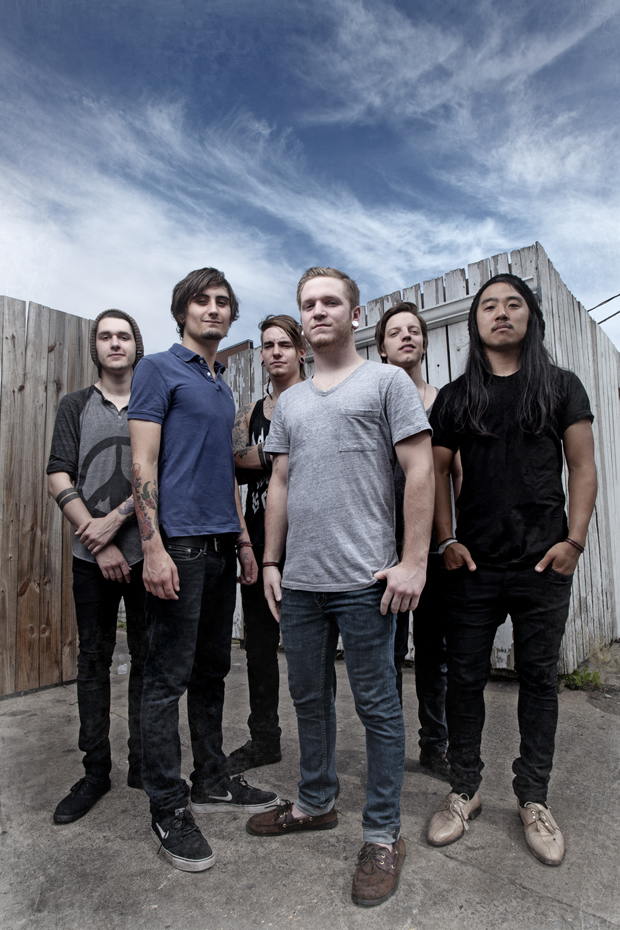
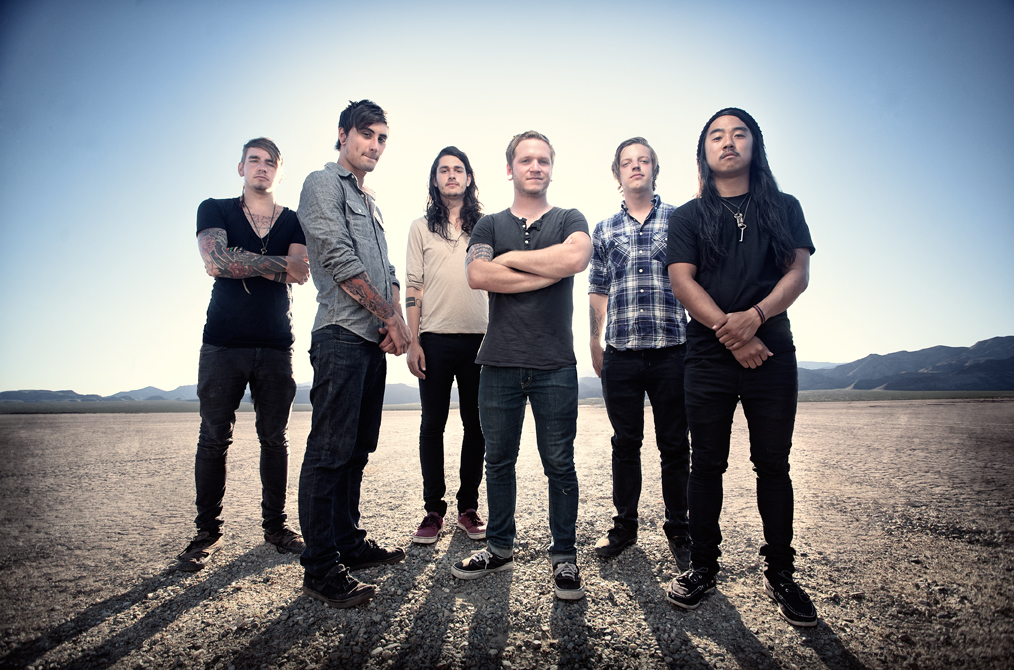
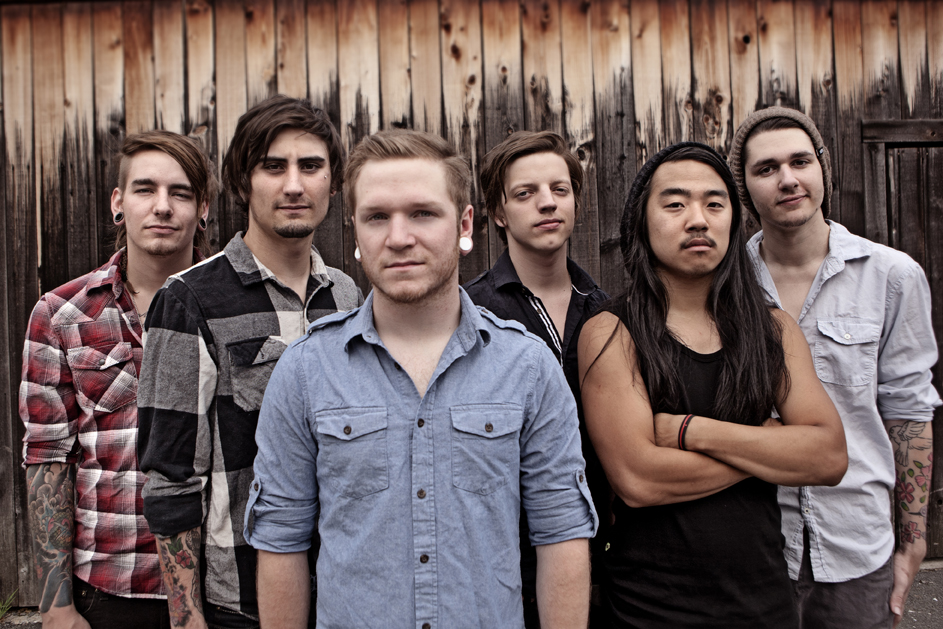
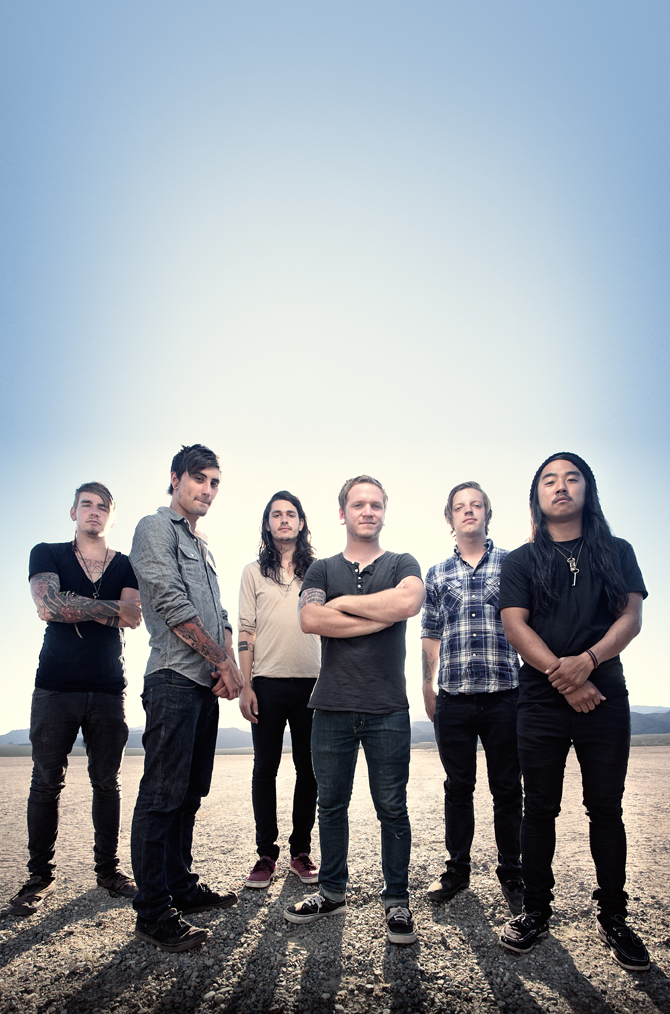


![[from left] George Harrison with his Gretsch Country Gentleman, Norman Harris of Norman's Rare Guitars holds a gold-top Les Paul, John Fogerty with his legendary 1969 Rickenbacker](https://cdn.mos.cms.futurecdn.net/TuH3nuhn9etqjdn5sy4ntW.jpg)







